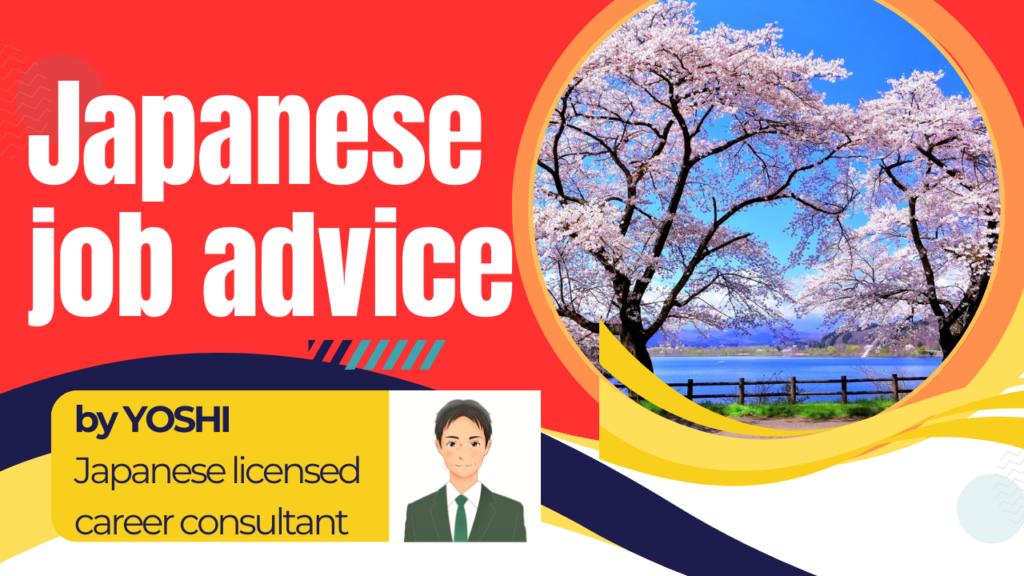What is a Black Kigyo? Understanding Japan's Toxic Workplaces and How to Spot Them

What is a Black Kigyo (ブラック企業) in Japan?
In recent years, the term "Black Kigyo" (ブラック企業 or "Black Company") has become increasingly popular in Japan, reflecting serious labor issues in certain work environments. Known for demanding long hours, overworking employees, and offering low wages without sufficient rest, black companies have raised concerns among employees, job seekers, and the government alike. This blog explores what defines a Black Kigyo, its impact on society, and ways to identify and avoid such companies in Japan.
I often receive job consultation requests, including inquiries from applicants asking, “Is this company a Black Kigyo? Could you check if it’s a Black Kigyo?
1. Understanding the Term "Black Kigyo"
Definition and Origins
The term "Black Kigyo" originated in Japan in the early 2000s to describe companies notorious for poor labor practices. "Black" reflects the unethical nature of these businesses, often characterized by their disregard for labor laws, exploitative working conditions, and high employee turnover.
Additionally, the opposite term, "White Kigyo," also exists, and job seekers work hard to secure positions in White Kigyo companies.
Characteristics of Black Kigyo
Typically, Black Kigyo exhibit the following behaviors:
- Excessive overtime without fair compensation
- Harsh or unrealistic performance demands
- Minimal or no regard for employee mental and physical health
- Insufficient job security, with rapid turnover and often high dismissal rates
- Pressure on employees to engage in unpaid labor or "service overtime" (サービス残業)
2. Common Practices in Black Kigyo
1. Long Hours and "Karoshi(過労死)" (Death by Overwork)
A significant number of Black Kigyo enforce overtime that can stretch into late hours or even weekends. Employees in these companies may feel pressured to stay longer due to unspoken workplace norms, ultimately contributing to exhaustion and mental health issues. The tragic concept of "karoshi," or death caused by overwork, is often linked to the conditions prevalent in such companies.
2. Power Harassment and Verbal Abuse
Power harassment, or "pawa hara" (パワハラ), involves senior employees or management exerting undue authority to intimidate or pressure subordinates. In Black Kigyo, power harassment can include verbal abuse, humiliating demands, and criticism intended to demean the employee.
3. High Employee Turnover
Due to poor working conditions, Black Kigyo frequently see high turnover rates. Employees leave as soon as they realize the working environment is unsustainable, creating a perpetual cycle of recruitment and resignations, further impacting employee morale.
3. Impact on Japanese Society
The presence of Black Kigyo has broader repercussions beyond individual employees. Issues associated with these companies, such as low job satisfaction, increased health risks, and mental stress, collectively affect productivity and morale on a societal level.
Public Awareness and Government Initiatives
The Japanese government has taken steps to address these issues, introducing labor reforms to enforce stricter regulations on overtime and workplace standards. Media coverage and public discussions have increased awareness, empowering workers to recognize and report unethical practices.
Impact on Job Seekers and Foreign Workers
For both Japanese and foreign workers, understanding Black Kigyo is crucial for avoiding exploitation. As Japan opens more job opportunities for international talent, knowledge of such companies' characteristics helps workers make informed choices and avoid potential pitfalls.
4. How to Identify a Black Kigyo
Whether a company is a Black Kigyo is not publicly disclosed (in the past, there was a satirical event called the Black Kigyo Awards, where companies were ranked online, but it has since ended). However, you can investigate on your own using the following methods.
Japanese people often use the following methods to determine whether a company is a Black Kigyo, which I will introduce here.
Researching Companies Before Applying
- Reviews and Ratings on Websites: Platforms like Glassdoor and OpenWork provide insights from past employees.
- Labor Union Records: Unions often keep records of reported violations or complaints against companies.
- Company Reputation in the Industry: Talking to individuals working in the industry or consulting industry reports can provide context.
- Frequent Job Postings: Companies that frequently post job openings may indicate high employee turnover, which could be a sign that the company is a Black Kigyo.
Red Flags During the Interview Process
Certain cues during the interview may signal a Black Kigyo, such as:
- Ambiguity about working hours or expectations.
- Emphasis on "family-like environment" without specifics on work-life balance.
- Reluctance to discuss pay or overtime compensation clearly.
Understanding Japanese Labor Laws
Awareness of labor laws in Japan, such as limits on overtime and mandatory paid leave, is essential. Familiarizing yourself with rights helps spot and avoid companies that operate outside the law.
5. Examples of High-Profile Black Kigyo Cases
Over the years, various Black Kigyo cases have made headlines, shedding light on these practices and igniting debates about labor reform in Japan. High-profile cases often lead to public outcry and government action, gradually shifting the culture towards more transparency and accountability.
6. How to Protect Yourself from Black Kigyo
Know Your Rights
Understanding Japanese labor laws, including rights to overtime pay, paid leave, and workplace harassment policies, can provide leverage if you find yourself in a difficult workplace.
Joining a Union
Many labor unions offer support and advice on handling workplace issues, helping employees navigate conflicts or negotiate better working conditions.
Consulting the Ministry of Health, Labor, and Welfare (MHLW)
The MHLW in Japan offers resources for workers facing problems with unfair labor practices. This includes a hotline where you can file complaints or seek guidance if you encounter illegal practices at work.
7. Conclusion
Black Kigyo in Japan are an unfortunate reality, posing challenges for job seekers and employees alike. However, increased awareness and legislative actions are helping to create a healthier work culture. By understanding the characteristics of Black Kigyo and taking steps to avoid them, workers can protect their well-being and contribute to positive changes in Japanese workplaces.
This draft provides the foundation for your blog and should help reach your target word count. You can expand each section with detailed examples, case studies, or statistics to reach 2000 words. Let me know if you’d like more details on any specific section!
Writer and Editor: Lio, Japanese career consultant

Lio is a nationally licensed career consultant in Japan. He holds the Level 1 SEO Certification and is a certified web analyst. Born in Japan, he has lived in four countries, gaining an understanding of various cultures while being well-versed in Japan's unique work culture and language. With 25 years of experience in HR at both Japanese and multinational companies, he leverages his expertise to support individuals seeking to work in Japan




